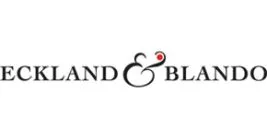Following the 2023 passage of HF100, a bill that legalized recreational cannabis use and sales in Minnesota, the Office of Cannabis Management ("OCM") now seeks public input as it drafts administrative rules for Minnesota's new cannabis industry.1,2 As cannabis and hemp businesses excitedly prepare for license applications to roll out (likely early 2025 at the current rate), it is extremely important to understand the slow-moving rulemaking process behind the law's implementation. The anticipated rules are expected to govern licensing criteria, as well as better define numerous compliance requirements related to manufacturing and retail operations, packaging and labeling, testing, cannabis tracking systems, environmental controls, amongst others. Paying attention to and engaging in the rulemaking process will help prepare cannabis businesses for what is coming.
In general, an administrative rule is a statement adopted by an agency to implement a law.3 An agency may adopt a rule only after the legislature has granted the agency statutory rulemaking authority, and a rule is only valid if it was properly and validly promulgated.4 In Minnesota, the OCM is the state agency that has been authorized to make rules, establish policy, and exercise its regulatory authority over the cannabis and hemp industries.5 A quick overview of the process, and interesting issues for cannabis businesses, follows.
What is the Rulemaking Process?
The Legislature holds the power to direct executive branch agencies to develop rules that implement a statute.6 Once properly adopted, rules have the force and effect of law. Minnesota, like the federal government and most other states, has an Administrative Procedure Act ("APA"), which is intended to protect the public from abuse of agency power.7 The APA establishes minimum due process requirements and specifies the procedures that state agencies must follow in adopting rules.8 However, because the Minnesota legislature authorized the OCM to engage in expedited rulemaking, a different—allegedly faster—rulemaking process than the standard procedures is being used to implement cannabis business rules.
What is the Expedited Process?
The expedited rulemaking process is a notice and comment rulemaking with legal review by an administrative law judge in lieu of public hearings or a statement of need and reasonableness.
Generally, state agencies in Minnesota can only bypass the standard rulemaking procedures through an expedited process if authorized by law.9 Here, the OCM is expressly authorized to use the expedited rulemaking process for any rules that are published in the State Register before July 1, 2025.10 Under this expedited process, an agency publishes notice of its proposed rule in the State Register and mails notices to those who have requested notice.11 The agency must then allow at least thirty days for public comment.12 At the end of the comment period, and after an administrative law judge approves the form and legality, the agency may adopt the rule.13 Unlike the customary rulemaking process, there is no opportunity for a public hearing under the expedited process, unless the legislature specifically provides for this opportunity.14
What Will these Rules Address?
Despite HF100, the bill legalizing recreational cannabis use and sales, being over three-hundred pages long, it still contains numerous gaps and gray areas that must be clarified by the OCM. Some of the areas to be addressed by the OCM's rulemaking process include:
- Licensing – license types, forms, procedures, required disclosures, felony disqualifications, limits on licenses held;
- Social equity considerations;
- Manufacturing and retail (facilities and operations);
- Packaging and labeling;
- Testing (laboratory approval, sampling, protocols, and standards);
- Expedited complaint process (for local governments);
- Integrated cannabis tracking, inventory, and verification system;
- Environmental controls (odor limits, water use, energy use, solid waste disposal);
- Use of pesticides and fertilizers; and
- Others.15
These criteria are particularly important to cannabis businesses, as this information will fill in the gaps that HF100 left.16 For example, although the law provides eight categories that license applicants will be scored on, it does not specify the weight of each category (excluding the social equity criteria, which must account for at least 20 percent of the total available points).17 The current law also leaves the agency to determine the number of licenses available in each category.18 It requires only that the office issue "the necessary number . . . to ensure the sufficient supply of cannabis flower and cannabis products to meet demand, provide market stability, ensure a competitive market, and limit the sale of unregulated cannabis flower and cannabis products."19 What does that mean, exactly? The answer is whatever the OCM interprets to mean—so long as the OCM definition is not arbitrary and capricious (read: reasonable).
Cannabis businesses are patiently awaiting other important rules that will impact their operating plans. For example, the OCM "may establish limits on the total THC" in cannabis flower and other products, set or increase limits on plant canopy size or the amount of manufacturing for certain business types, like microbusinesses and mezzobusinesses.20 Testing requirements remain to be filled in by OCM, including the procedures and standards for testing, as well as the allowable levels of certain contaminants, and other environmental standards that cannabis businesses must comply with related to water, energy, solid waste, and odor.21 Importantly, the office must establish certification, testing, and labeling requirements for grow methods, including growth from seed, clone, cutting, or tissue culture.22 Even the process that local government units must follow to make a complaint about a cannabis business is left for the OCM to decide.23
In sum, the success of the cannabis market in Minnesota will rise and fall on the rules implemented by OCM. And, drafting successful rules will be no easy feat, given the numerous areas left to the OCM to determine by the Minnesota legislature.
What is the Rulemaking Status at OCM?
Since Fall 2023, the OCM has been busy engaging the public and drafting rules. The OCM concluded its seventh, and final, public input survey on February 26, 2024. OCM officials stated on a public webinar that they expect rules to be formally proposed sometime during fall 2024.24 At that point, the mandatory 30-day public comment period would begin, and further revisions could be made.25 In the meantime, the OCM may begin issuing temporary licenses as early as this summer to social equity applicants, depending on the passage of S.F. 4782, in an effort to prevent a licensing bottleneck and increase opportunities for social equity-owned businesses to establish property and capital resources before retail begins in 2025.26
For now, what is the best thing for an interested cannabis or hemp business to do? Stay aware of any communications from the OCM and follow the journey of S.F. 4782 through the 2024 legislative session. As the regulatory landscape continues to form, the ability for a cannabis business to quickly adapt its business plans and expectations is vital.
Footnotes
1. Drafting and research assistance provided by Rebecca L. Favre, Eckland & Blando Law Clerk.
2. Rulemaking Overview, Minnesota Office of Cannabis Management, https://cannabis.mn.gov/rulemaking.html.
3. Minnesota Administrative Rules, Office of the Revisor of Statutes, https://www.revisor.mn.gov/rules/info/.
4. Id.
5. Minn. Stat. § 342.02.
6. Administrative Rulemaking, Office of the Legislative Auditor-Program Evaluation Division, https://www.auditor.leg.state.mn.us/ped/1993/pe9304.htm#:~:text=Minnesota's%20Rulemaking%20Process&text=In%201980%2C%20the%20APA%20was,%2D%2Dremain%20in%20effect%20today.
7. Id.
8. Id.
9. Mark Shepard, Rulemaking: Expedited Process and Exemptions, House Research (June 2012), https://www.house.mn.gov/comm/docs/RulemakingExpeditedProcessandExemptions.pdf.
10. Minn. Stat. § 342.02, subd. 5.
11. Mark Shepard, Rulemaking: Expedited Process and Exemptions, House Research (June 2012), https://www.house.mn.gov/comm/docs/RulemakingExpeditedProcessandExemptions.pdf.
12. Id.
13. Id.
14. Id.
15. Rulemaking Overview, Minnesota Office of Cannabis Management, https://cannabis.mn.gov/rulemaking.html.
16. If, however, S.F. 4782 passes during the 2024 legislative session, this may alter some of the analysis that follows regarding gaps in the law.
17. Minn. Stat. § 342.18(subd. 3).
18. Minn. Stat. § 342.18(subd. 2).
19. Id.
20. Minn. Stat. § 342.06(c); § 342.28(subd. 2)(c).
21. Minn. Stat. § 342.61; § 342.08.
22. Minn. Stat. § 342.07(subd. 1).
23. Minn. Stat. § 342.13.
24. Ben Adlin, Minnesota Marijuana Regulators Outline Plan To 'Expedite' Legal Sales And Give 'Early Advantages' To Equity Businesses, Marijuana Moment, (Feb. 1, 2024), https://www.marijuanamoment.net/minnesota-marijuana-regulators-outline-plan-to-expedite-legal-sales-and-give-early-advantages-to-equity-businesses/.
25. Id.
26. Id.
The content of this article is intended to provide a general guide to the subject matter. Specialist advice should be sought about your specific circumstances.
[View Source]

